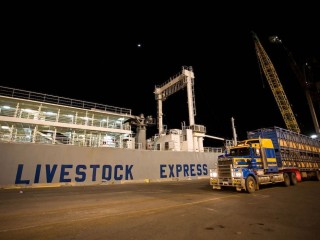 The live export trade is slowly rebuilding with 19,000 cattle having now been shipped to Indonesia since the suspension on trade to the market was lifted.
The live export trade is slowly rebuilding with 19,000 cattle having now been shipped to Indonesia since the suspension on trade to the market was lifted.
Australia has import permits from Indonesia to supply 180,000 cattle to the market for the current quarter which ends on September 30.
However the restricted nature of trade under new Federal Government rules, which require full traceability of Australian cattle through accredited supply chains, meant it was unlikely that Australia would ever fill that volume this quarter.
The Ramadhan festival, a peak period of beef consumption in Indonesia where feasting follows a month of religious fasting, has now finished, and demand for beef in the market is returning to normal levels.
Australian Live Exporters Council (ALEC) chief executive officer Lach MacKinnon said it was hoped new import permits for the October to December quarter would be granted by Indonesia in coming weeks.
Most of the 16 live export companies that are members of ALEC have now sent shipments to Indonesia, or were about to.
The future of the live export industry will hinge on the outcomes of two major reviews – the independent review of the industry by Bill Farmer and an inquiry by the Senate Rural Affairs and Transport Committee into animal welfare standards in the industry.
Mr Farmer lodged his final report last week but the Government has not yet released its findings or recommendations.
After conducting hearings in Canberra, Darwin, Broome and Katherine over the past month, the Senate committee is scheduled to hand down its final report later this month.
DAFF representatives who addressed the hearing in Canberra suggested it was likely that the industry will be required to use accredited supply chains, similar to those now in place in Indonesia, across all markets in future.
Mr MacKinnon said it would be difficult to implement a “one size fits all” policy in all markets and systems would have to be designed to suit the individual requirements of each.
“I think what will happen is that supply chains will be set up that best correspond to each particular market.
“What is in Indonesia might not fit somewhere else, so we’ll have to come up with a system that is as robust as that system but at the same time works for each particular market.”
